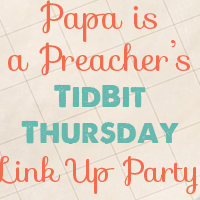Several years ago someone sent us a movie about talking ponies with falsetto voices who rollicked around baking cakes and rollerblading and pouting and misunderstanding each other and then making it all up in song at the end. I generally don't allow such falsetto nonsense in my house, but the jBird was intrigued and I didn't want to come across an evil dictator, so we watched it. There was a sort of musical interlude where the ponies sang directly to the camera something to the effect of: "Your dreams can come truuuuuuuee!" and so on with all of the self-esteem building that pastel animated ponies could muster. My jBird looked at me and her little chin crumpled up and wobbled.
"Yes, honey. I know. It's so bad it makes me want to cry, too."
"Mama! They are saying that my dreams will come true!"
"Uh, yes..."
"I don't
want my dreams to come true! They're strange and a lot of times they're scary!"
Looking into that frightened little face was a moment of pure maternal adoration. I shut off the movie and hugged her and reassured her and explained to her about
clichés. She snuffled around a little bit, verifying several more times that the giant spider who walked on her bed the night before in her dreams would not actually materialize because the talking ponies said it would and then she got angry.
"Why would they tell kids that? That's just mean!"
Why, indeed?
I tell you this because it's hilarious. Also because it perfectly illustrates one of my pet peeves about language. I'm not a fan of the clich
é. (Even though I just used one in that sentence. Ooh! Quick digression: when jBird was tiny, we would say "I'm not a fan of ..." instead of "I don't like..." or "I hate..." because we'd rather she not learn those particular phrases when she was two. One time we were in an elevator and a man got in with us and stood rather too close to jBird for her taste and she ducked over behind my legs and looked out at him and said: "I'm a fan of my mom." It was cute and he laughed and she and I were the only ones who knew that she was really saying "I don't like you" to the man. See what I mean? Language matters.)
So, pet peeve. It would seem that we indoctrinate kids from a very young age to think and speak in catchphrases and
clichés and then they grow up and think that's honest communication. We tell them things like "your dreams will come true" and expect them to know that we're pumping them full of delusions of grandeur, not threatening them with their nightmares made corporeal. Not only do
clichés oversimplify things (which is why, I suppose, they turn up so much in children's literature and on Facebook), they are boring, and to a certain extent, dishonest.
I will fully admit to being a bit of a language freak, here. I didn't speak baby talk to my children, even when they were babies. We taught them the correct words for things when they asked. (Well, except doughnuts. The Chief Lou gave the jBird a doughnut hole when she was about 18 months old and I said, under my breath to him, "She doesn't need to eat that crap." The next time we got doughnuts, jBird piped up and said "I want crap! I want to eat crap!") There were no binkies or ba-bas or tee-tees or ta-tas in our house because I am a curmudgeon about such things. Having these two little language sponges around really made me stop and think about the language I used with them and in general and how I communicated not only with them, but with everyone. We get used to speaking in shorthand, we accept the strange
clichés of our particular demographics, and we take the words we use for granted.
As writers, this cannot be so. As writers, we can't take the words we use for granted. We can't resort to shorthand and
clichés. I suppose we can, but we wouldn't be very good writers, then. (One last digression: that is not to say that we wouldn't become
published writers, though. This is an odd conundrum.) So, for the writing.
Audience participation time! I have it on good authority that people enjoy this. And so do I. Immensely.
Let us think about
cliché. Pick one out.* Write about it. Explore what it actually means. Make a defense of it, or disprove it. Think about the language that you use and blast that
cliché wide open. (And, for funsies, you can do what I do, go through all of your old writing with a Sharpie and eradicate anything trite or at least admit that it is and try to find a new way to say it.) Send me a link or an email or leave it in the comments. Share with your friends. There's no particular deadline, just let me know what you come up with and when I get a bunch of them I'll share in a link-up post. Fun, no?
Remember: Think outside the box on this one.
(All right, it physically pained me to type that.)
*This is based loosely on a prompt in
The Writer's Idea Book. I highly recommend the whole book.




